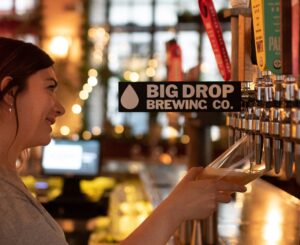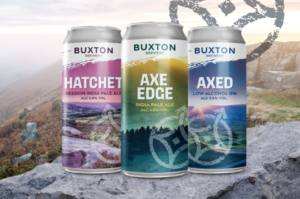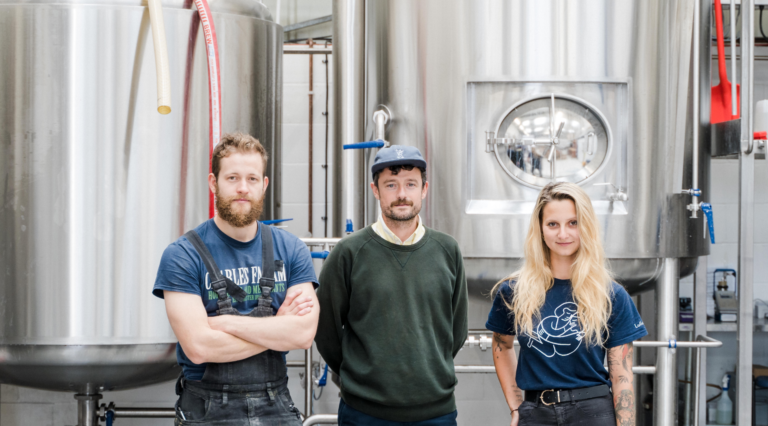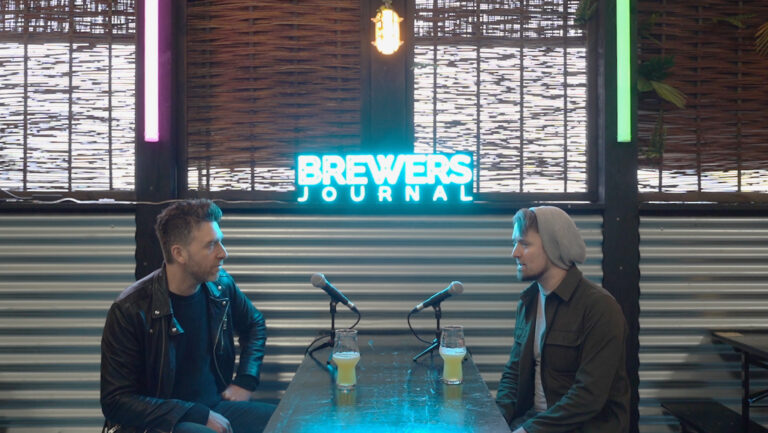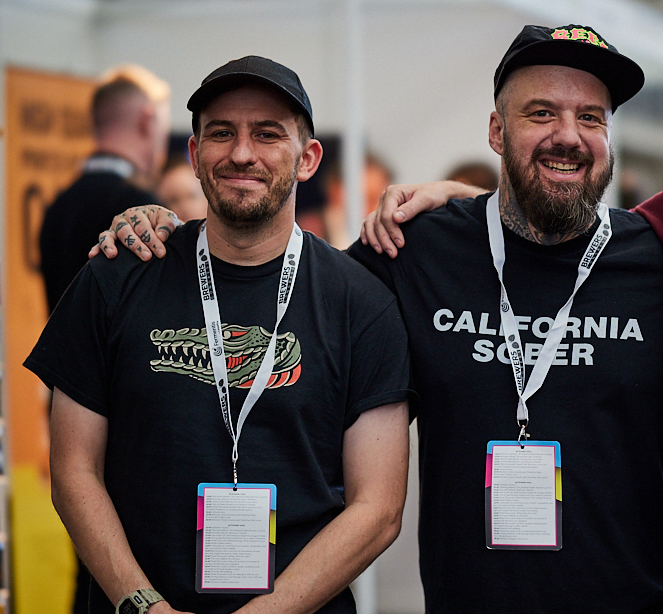Beer is big business and breweries are moving to protect their brands. Research released towards the end of last year revealed that nearly 2,000 (1,983) new trade mark registrations were made during 2016. It was a considerable 19% increase on the year previous and that figure has no doubt risen since, too.
“The craft beer sector has been booming – and now there are not only a number of new entrants, but also more established breweries, larger drinks corporations and supermarkets all wanting to establish a share in the market, said Jeremy Drew, a commercial partner at RPC, which carried out the research.
He explained: “With more players in the market, it’s becoming more important that companies protect their intellectual property. This is an innovative area of the market as well as a fast growing one. Craft beer brands are often prized by consumers for their unique methods of brewing or the original ingredients used.
“However, much of this does not lend itself to protection by registration and so the brand name and look of the packaging takes on much more significance in terms of protecting advantage at the point of sale.”
RPC said that with the number of trade marks rising, copycat/brand conflict disputes are also likely to increase.
“The nature of the craft beer market presents certain IP challenges. Rather than one flagship brand, consumers seem to be interested in a range of more differentiated products and brands – but this means a greater chance of similar brands clashing, Drew added. “Legal disputes can be costly and disruptive so it is sensible for businesses to ensure they are protecting themselves from the outset but also being sensible about what fights they choose to take on.”
With that in mind, we spoke to some leading experts in the field to ascertain what changes you should be looking out for, and how to act upon them.
Brexit and the brand
Historically, brewers have led the way in registering their trade marks to protect their brands. The red Bass triangle was for example the first mark ever to be registered in the UK, explains Jo Pritchard, a partner TLT
Since then, major brewers have maintained significant trade mark portfolios and the craft beer movement has triggered a rapid increase in the number of registered beer brands.
She explains: “This is not just a UK phenomenon; beer brands travel well and must also be protected in valuable overseas markets. For a UK brewer, Europe is an obvious target market and, to obtain appropriate protection, many have opted for the extremely good value EU trade mark that applies across all member states.”
So what will happen to the UK rights currently provided by EU registrations post-Brexit?
While the answer is not yet known, commentators and relevant bodies believe there is likely to be some provision made that would essentially maintain protection in the UK as well as, separately, in the EU. Given these expectations, it seems the question is really one of administration, Pritchard tells us.
She says: “The European Commission has indicated that any pre-Brexit rights should be recognised automatically in the UK without incurring any costs for the rights owner. However, the UK Intellectual Property Office (which is tasked with managing UK rights) has been less clear, saying: “the government is looking at various options and we are discussing the best way forward with users of the system.” One of the options under discussion is a requirement to opt in to maintain UK protection (possibly with a cost attached).”
Another right caught in the Brexit web is the less common geographical indication (GI) – a sign used to designate a product’s specific geographical origin that often relates to premium products, such as Kentish Ale and Rutland Bitter.
GIs, Pritchard says, are currently protected under EU law and the EU Commission has clearly indicated that the UK government should implement new legislation to ensure their continued protection. This seems highly likely and GIs may simply fall within the Repeal Bill.
She adds: “There are a number of more technical issues to consider, such as how pending applications will be managed and what will happen to ongoing oppositions – particularly those based on UK unregistered rights. And what happens if a significant part of the “use” that is required to maintain EU trade marks after the initial five year period is pre-Brexit use in the UK?”
Exporting your brand
For Ken Sewell, head of business and development at Nucleus IP, Trade Mark Attorneys, many companies are aware of the need to obtain protection for their valuable brands, yet still procrastinate. Trade Mark registration will secure certain rights over the competition: allowing uninterrupted use of your brands and preventing third parties from registering identical or closely resembling brands in the same business area.
He says that Trade Mark rights are territorial, therefore having obtained UK Trade Mark registration does not guarantee the same brand will qualify for protection in your overseas target markets. IP firms can investigate this on your behalf offering identical prior searches through to full availability searches.
Whilst it makes good economic sense to seek to protect your brands in all jurisdictions where you presently trade, or at least intend to over the next 3-4 years, it is not always a straightforward process.
Sewell explains: “As specialist Trade Mark Attorneys, we were recently approached by a company to investigate protection for one of their brands which they were looking to possibly export to the US. Unfortunately, our research revealed an identical existing registration in the same class (category), which generally means there was little or no chance of obtaining Trade Mark protection. Moreover, it would, under such circumstances, have been extremely difficult to even attempt to make use of the brand in the States, whilst that earlier registration remains on record.
“Occasionally, ways around a problem of this kind are possible. For instance, the US employs a different law to the majority of other countries, a so called ‘first to use’ system rather than a ‘first to register’. On this occasion this was irrelevant as the company had yet, thankfully, to begin go to market in the States.
“Taking all future associated costs into consideration, such as lining up distributors, arranging shipping, local labelling requirements etc. it is prudent to consider using the investigative services of an expert IP firm before embarking on what could turn out, otherwise, to be an expensive exercise.”
Brewing the perfect craft beer brand
The incredible growth in craft beer continues at pace on both sides of the Atlantic. Recent growth in the US has seen more than a 24% increase and the UK is also playing its part with 65% over the past five years. There are, of course, also craft opportunities in new markets and notably China where the wider beer market is stagnating, says Edward Carstairs, senior associate at Gill Jennings & Every LLP.
Drinkers are increasingly keen to engage in an “experiential” relationship with their purchase. That means there is a thirst for artisan products and a willingness to pay a premium price, where provenance plays an important part of the story. For example, Carlsberg Export has undergone a £15m rebrand with a focus on its Danish heritage in an effort to tap into this
Consequently, he says, there are significant opportunities for brewers so there has never been a better time for start-ups to give up the day job for full time brewing. Existing brewers will also have the opportunity to grow their business, perhaps with a lucrative buy-out later down the line, whilst the big breweries are also looking to take a share of this increasingly profitable sector.
All of this does present challenges from a branding perspective but what are those challenges and how can they be addressed? Is it possible to find a unique space with so many breweries now operating? How do you grow your brand or achieve a successful exit and how does a brand strategy help? What are the risks, opportunities and challenges? This article tries to answer some of these key questions as it looks at some of the growing trends in the sector.
A rose by any other name would smell as sweet… wouldn’t it?
Carstairs says: “Of course you need a great product but the name is equally critical to success. Now that supermarkets are jumping aboard the craft beer train with the likes of Waitrose introducing 25 new beers from names including Redchurch, Five Points Brewing Company, Alchemy and Wild Beer Co, it is harder to find a name that is not already taken.
“Any brewery will of course have given very careful thought and will have invested considerable time and attention to its QA scheme. A similar approach is required when it comes to choosing a product name.
“An enforced name change would be a serious issue not just financially but also in terms of management time, reputation and consumer brand awareness. For example it could be terminal to a proposed sale of a craft brewery if the potential purchaser wants to develop the existing successful brand only to find that a competitor has beaten them to the name in a key market.
“You can reduce the risk by running clearance checks and searches as early as possible and ideally before you have made the final decision to adopt a new brand name. It is always a good idea to have a few options available and to try not to get wedded to a particular one before you know it is clear. There are checks you can run yourself and the obvious places to start are beer rating sites such as www.ratebeer.com, www.untappd.com and www.beeradvocate.com.”
However, Carstairs says, these will not give a definitive answer for a number of reasons.
Firstly, similar brands will not necessarily be located and these can be as serious a threat as identical ones. Secondly, it is not just earlier beer brands that can pose a risk but also wine and spirit brands and even soft drinks.
“For brewers, those items will seem completely different but the legal position is that there can still be a risk of confusion because beer can come from the same manufacturers (when you think of large companies like Diageo or even smaller microbreweries selling both craft beer and craft spirits), with the products being complementary (like a shandy containing lemonade and beer) and sitting together behind a busy and noisy bar,” he explains.
On a third point, Carstairs says it’s not just names that are in use that you need to worry about – a name which has been registered as a trade mark (even if there’s no corresponding product on the market yet) can also cause serious problems.
“Running the right checks early can be key to ensuring the success or otherwise of a brand and business. Forewarned is forearmed. Making this kind of investment in “clearance” may be painful at the time but it can really save you money (and a huge headache) in the long run,” he adds.
“Naturally the craft beer industry is a friendly and collaborative place and historically there has been respect for a gentleman’s agreement to settle a dispute without lawyers (and probably over a beer or two). This is changing,” he says. “There is increasing money and power in the industry whether from big breweries taking stakes in, or buying out, smaller businesses or the incredible growth of craft breweries themselves (see for example BrewDog’s launch of a $50m crowd-funding round in the US to “turbo-charge” its US expansion).”
Carstairs adds: “Craft beer brands are increasingly valuable commodities worth protecting, as witnessed by SABMiller’s £120m purchase of craft brewer Meantime in 2015. And the beers themselves can also be eye wateringly expensive, with some selling at $50-$100 or more per 750ml (e.g. Samuel Adams’ Utopias, Brewdog’s Sink The Bismarck beers).
“All of this means that disputes are not as “friendly” as they were before and are less readily resolved (especially if multiple global, wealthy stakeholders and not just individual brewers are involved).
“It is not just the domestic market that needs to be considered. The surge in exports has added a further level of risk. It may still be possible for a brewer to come to an agreement in its home market but that is far less likely where that brewer attempts to export to a new territory that is home to a long-standing incumbent.
“Brewers need to be aware of the risks abroad whilst also keeping an eye on competitors entering their space. Notably, American craft brewers exports are at an all-time high exceeding US$121m, with the UK seeing a 10% increase in imports. Small and independent craft brewers are now getting in on the international market.
“However, any adversarial action needs to be considered carefully particularly bearing in mind how the matter might play out in the press. BrewDog certainly found themselves in the firing line after a cease and desist letter was sent to a family-run pub regarding their use of the name “Punk”.”
The game is changing and the stakes will only get higher so craft breweries must adapt, he states.
Protect your brand
Once the brand name has been cleared for use, the next action is to obtain registered protection in the key markets.
In the UK, you start building up unregistered rights as soon as you start using a mark, but many other countries don’t recognise unregistered or “use-based” rights and instead operate a “first to file” policy. That means you could struggle to take action against someone copying you or attempting to register a conflicting mark because you would only have unregistered rights on which to rely.
Even where unregistered rights are recognised, it’s easier and so cheaper to enforce registered rights because you simply need to produce a registration certificate rather than evidence the extent of use.
A registered trade mark is also an asset that can be of great value to a business when it comes to securing investment and/or looking for an exit (e.g. purchase by a bigger brewery – see SABMiller/Meantime). The absence of a registered trade mark can lead to problems in due diligence with your company seeing a lower valuation or even the termination of a potential sale.
Make sure you own your brands
Nobody likes to discover they don’t own their brands, especially when that brand represents a business borne of years of hard-work, dedication, and experience. And, anybody can buy a brewery, but not anybody can craft drinks that people want to buy, says Dorothy Agnew, partner and copyright lawyer, Moore Blatch.
According to Blatch, many businesses are surprised to discover they don’t, in-fact, own their brand. This is a common mistake made by young businesses. This issue invariably arises when a business contracts out the production of their sales and marketing to marketing or design agencies or individuals. Just because you may have paid a company for the ingenious branding for your latest pale ale or gin, doesn’t necessarily mean you own the copyright.
She explains: “This normally only becomes an issue when a business owner wants to sell some or all of his or her company. Valuing a business is plainly dependent on the assets that it holds. Whilst there may have been significant investment over the years – whether in equipment, buildings, staff or software – the real value lies in non-tangible assets, often referred to as ‘goodwill’.
“These assets may include intellectual property, unique recipes, customer loyalty and corporate branding. Of these assets, one of the most important is the branding on a business’ drinks.
“By law, copyright is automatically owned by the developer, be it website or marketing agency, as the creator of the relevant works even though you paid for the creation. Therefore, it is imperative to check that the developer transferred ownership of those rights to you, or you should negotiate for them to do so. This could include your logo, corporate imagery, names of your drinks plus any individual branding of bottles, among others.”
Agnew goes on to add that the situation with Intellectual Property (IP) is similar, and is often one of the most disputed issues between competing businesses. So, it is also necessary to consider whether you have signature products for which you are famous.
And if you are every looking to sell some or all of your business then buyers will want to ensure that the company they are looking to purchase fully owns the IP to any trademarks or corporate branding.
Also, she says, securing a trademark(s) helps protect a business’ name or product names from use by similar businesses.
“Failure to register also leaves a business vulnerable to actions, such as ‘Passing Off’, where a competing business takes advantage of the reputation of another’s goods or services. Or, trademark infringement, where a company uses a name which is the same or similar to a registered trade or service mark already owned by another business,” says Agnew. “While there are legal remedies for both scenarios, including court injunction and damages, the reality is that rectifying the issue can be costly and may also affect the reputation of your business in the meantime.”
For more information there is a good government guide and checklist to intellectual property valuations at www.ipo.gov.uk
She adds: “Another consideration relating to ownership is when you have databases of customers because these, too, could add significant value to your business. Here, the key legal issue is the Data Protection Act, and the GDPR (General Data Protection Rules) which come into effect next year. In short, every business that holds personal data electronically for the provision of services to register with the Information Commissioners website.
“Building up a business takes an enormous amount of dedication and hard work, so it is a shame when business don’t realise their full value because they don’t fully own the copyright or IP to a brand that has become an integral part of their success. So our advice is consider these issues and take advice if appropriate.”




